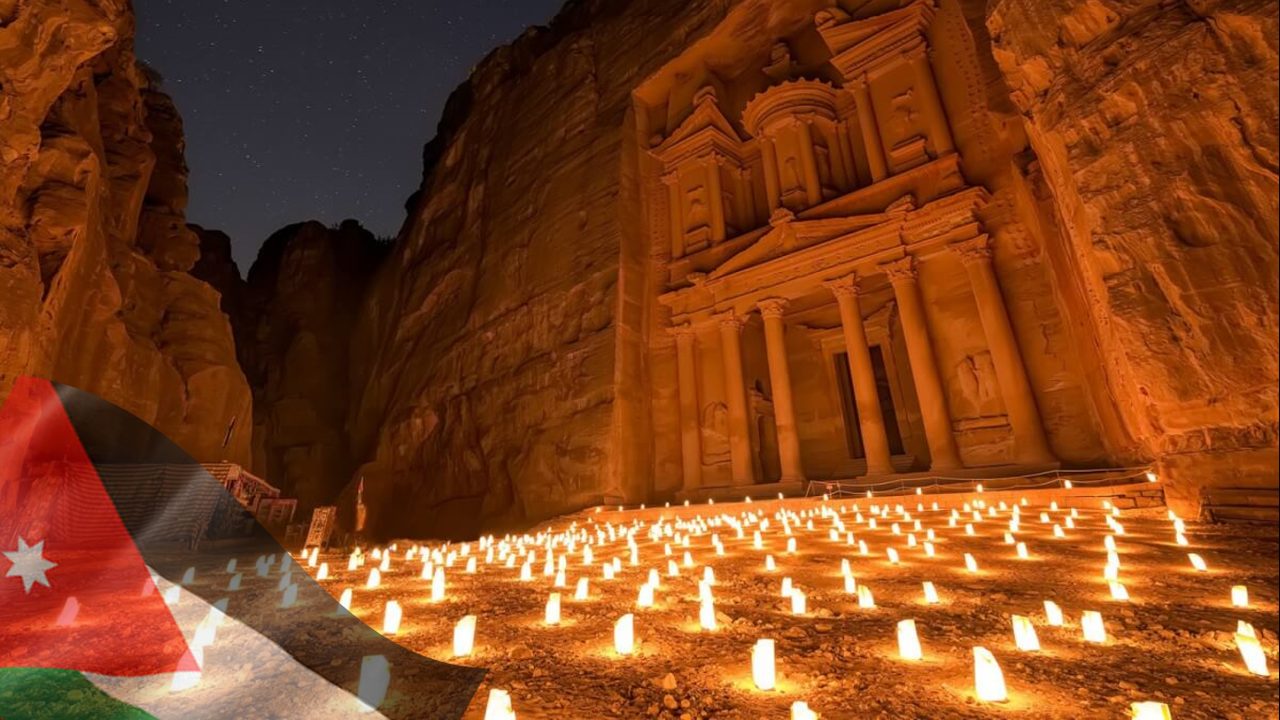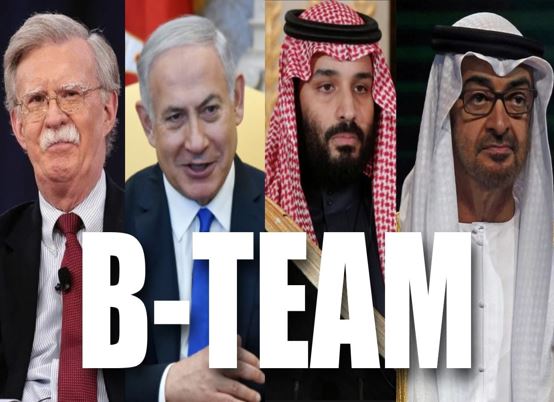For more than a year now, ever since Trump stepped out of the JCPOA there were serious questions what would follow. Does that mean preliminary steps for war, or just the US steps out, while the rest of signatory members would continue implementing the deal. Later on it became clear that with the constant bullying the US really tries to suffocate the Iranian economy and destroy the JCPOA entirely. That, added to the old claims to the Gulf monarchies and Israel as Iran is expanding dangerously in the region and must be stopped looked quite bad, but didn’t seem to irk Tehran too much. Since the real question is what Washington does, as it is obvious the gulf states, no matter how eager some of them are, stand no chance to fight a war against Iran. But, just like Israel, would love to see Iran burned and split the – theoretical – spoils of war, in Iraq, Syria or other places. All that, however, turned quite bad in the last month or so, when articles on the chances of war with Iran and the heated exchanges between Tehran and Washington became daily routine. The first very menacing sign was the appointment of John Bolton as national security adviser in March 2018, given his already vicious character and lust for war. And he, along with foreign secretary Mike Pompeo really managed to shift amiable relations with Iran only a two years ago to the brink of war.
The situation is so tense now that Iraq started a mediating maneuver to prevent the war at any cost. And as we saw few weeks ago, given their proximity to Iran for them it is a vital question. Amidst the speculations, in a quite surprising turn indeed, Iranian Supreme Leader ‘Alī Hāmeneī announced on 10 May that there will be no war, though he reaffirmed there will be no concessions. Almost enviable calm emanates from this standing, which is just further reaffirmed by the interviews of Iranian foreign minister Moḥammad Ğavād Ẓarīf, who many times casually thwarted accusations and seemed almost casual, while being sharp as always. He managed to sink a new term, which is only starting to appear in the Western press, but became quite a quote in the Middle East. By his words, their problem is not with Washington, nor the least with Trump, but the “B-Team”, which is pushing the US towards war. A war that nor the president, nor state interests want. That team is of four people: Bolton; Bibi, alias Benjamin Netanyahu; Bin Salmān, or Muḥammad ibn Salmān Saudi Crown Prince; and finally Bin Zāyid, otherwise know as Muḥammad ibn Zāyid, Crown Prince of Abū Zabī and foreign minister of the Emirates. Except Bolton, all are practical leaders of their respective states, regardless of their titles. The Western media in general chose not to notice that mention, or regard it as funny nonsense. Yet, it is something not only accurate, but quite shocking if proven to be true. First of all, would it be possible that the leading Gulf states, which are indeed dictating policy in the Middle East now – for the better of the worse – would cooperate with Israel? Not loosing sight of the fact that only Netanyahu is an actual head of government, at least for the moment, that would mean cooperation between the leading Arab states and Israel in a deep-state level on most pressing security matters. Could that be true? Now, given the old rumors and occasional guesses of Jewish-Israeli lobby groups dictating policy in Washington, while occasionally the same comes up with the Saudis, these notions always appear as if they are competing and mostly against each other. In this light the whole B Team idea just seems nonsense. Especially as if they would have an accomplice in the White House, Bolton. That really seems wild.
Yet there is something remarkable in it, since otherwise two things are very hard to be explained. How come Trump keeps bouncing back and forth between war rhetoric and funny turns, like he is by the phone waiting the Iranians to call. It really does seem that way that some forces push the train towards war and Trump is gearing the tone down always in the last second. Also it is hard to explain why even hardline Trump-supporting channels like FOX keep ridiculing Bolton and those around him, and making no secret out of Trumps lack of care for their words. These outlets were saying practically right the same thing as Ẓarīf, only without the implications of other members of the B-Team. So it seems there is a power group, which pushes the president to directions he is quite reluctant to go. But if this group does have Gulf and Israeli connections and they do coordinate their steps in such levels that can potentially have huge implications for the future of the Middle East. So this week we bring these illustrious members of the B-Team closer, and why would they just be very willing to cooperate. Or in other words, why all of them have their own very selfish reasons on this joint project, even way beyond Iran.
Bolton
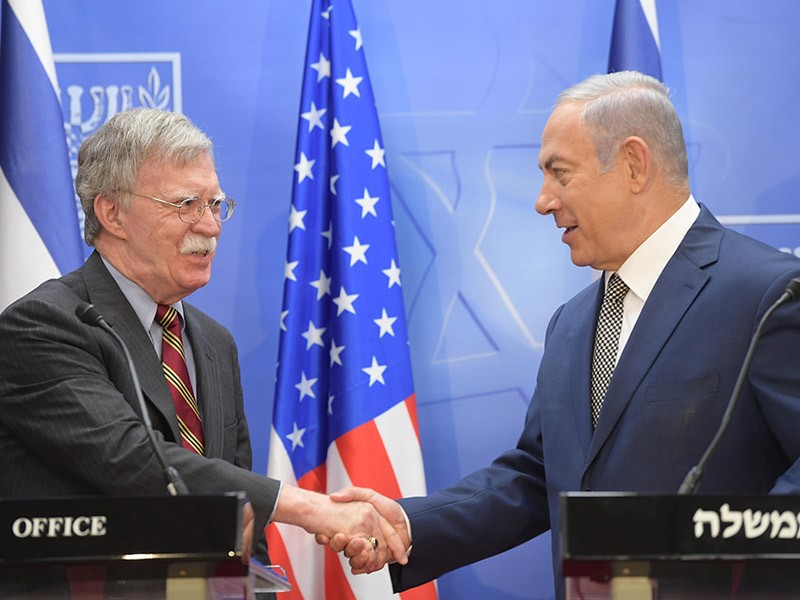
John Bolton is a real veteran of American diplomacy, with a very toxic reputation. Even more restrained sources hold him erratic and vicious, practically a war hawk. He made a name for himself as George W. Bush’s UN envoy, when he showed his total disregard for international norms and law. His statement, like the U.N. is only functional as long as it serves American interests really shows his approach. He was, along with another war-loving foreign secretary, Condoleezza Rice, the main responsible for the Israeli aggression on Lebanon in 2006. Because at that time, when Israel was waging a devastating war on Lebanon, theoretically fighting Ḥizb Allah, the French diplomacy sided Lebanon and tried very hard to reach a settlement. But Bolton circumvented his superior Rice, briefed Israeli officials, and pushed for the continuation of the war. Which eventually lead to one of Ḥizb Allah’s biggest moral victory, and the first time Israel couldn’t even reach partial victory for its aims. Bolton was, even than, held as Israel’s insider man in the American administration, and in a number of issues pushed for war policy from Iraq, even to Syria.
Many would wonder how is that even possible. Even with the known might of the pro-Israeli lobby from AIPAC to other groups, it is somewhat puzzling how that can be. He actually belongs to one of the most aggressive circles of the pseudo-Christian movement, otherwise known as Evangelicals, amongst whom it is a widely held belief that the end days have to be hastened. According to them, at the end days the state of Israel will be rebuilt, recover all its – supposed – former might, rebuild the temple and the last war will commence. That is a substantial group in the US, who constitute a major portion of Trumps voters, even if they are not the majority. Which could mean that Trump is from the same ideological background. But the difference and the occasional collusion between him and his national security advisor come from the fact that Trump himself is far from being such a hawk. No matter how much he relies of this segment of his voters, he realizes the dangers of such war policy and knows how devastating the war on Iraq was on the US. Though we should not forget how catastrophic that was for Iraq, and the Middle East generally. In this sense, one should even be thankful that it is Trump at the helm, not a weaker character like Bush junior was.
Bolton’s real obsession, however, is Iran. He was pushing for war even before he became national security advisor last year. During the Obama years he disappeared from the limelight, but still he was very active to build American support for any organizations, which was willing to fight the Iranian government. That naturally included Israel, but any long term policy requires a substitute for the current government in Tehran, which the US could build up, and after a war could put in place. For that aim he found a more than worrisome ally, the Muğāhedīn-e Halk-e Īrān (MEK), the Organization of Holy Warriors of the People of Iran. This shadowy organization was formed in Iran in the ‘60s along Marxist and Islamist lines, and fought a sort of guerrilla war against the state of the Shah. Though it was practically broken up by the the SAVAK, the secret service of the Shah, it was quickly reorganized by Mas’ūd Rağavī and his wife, Maryam. That is when they became designated as a terrorist organization even by the US. The MEK briefly became legal in Iran at the time of the revolution, Rağavī even run for presidency, only to be redeemed apostates and enemies by Homeīnī. They returned to their guerrilla tactics, even killing a PM and a president among many others, for which the new Iranian government held it a terrorist organization again 1981. It built a huge support network in Iranian diasporas around the world, having their most important center in Paris. In 1983, however, they made excellent ties with Ṣaddām’s Iraq, and in 1986 totally relocated there. Enjoying massive Iraqi support, they fought against their own countrymen in the war, and stayed in Iraq until 2011. Meaning by some mysterious circumstances they managed to stay unharmed in Iraq even after the American invasion. Even though they stayed on the international terrorist list even by the US until 2013. The organization, which is by many held as a cult rather than a political formation, found its way back to Paris by the late 2000’s, where they hold yearly grand meeting claiming to topple the the Iranian government and restore democracy. Which is quite an interesting desire from an organization, given they never showed any democratic will in their entire history.
In 2017 Bolton, along with a number of leading American and international politicians joined the meeting where he held a speech. In this Bolton, who was not a formal American official that time, appeared in his usual style promising American support for the MEK, and the cancellation of the JCPOA. Two notions, however, are noticeable from the speech. First of all, Bolton acknowledges that he attended similar meetings with the MEK leadership for some ten years by than, which means that he was holding close connections to an organization even the US held as terrorists at the time, even when he was UN envoy. The other menacing notion that he promised the MEK and himself will celebrate a new government in Tehran before the end on 2019. Even though he regularly claims that Washington is not aiming a regime-change policy regarding Iran, which statements are always aired in American propaganda networks like Radio Fardā – a sublet for the VOA mainframe -, these words come rather void knowing his previous vows.
His obsession with Iran cannot be explained on Evangelical grounds, since the main ideological source of this movement, the Old Testament regularly holds positive views on most Iranian kings. Which is historically accurate, since Persian kings from Cyrus the Great to Šapūr I. – regardless the seven centuries between them – were treating Jews well in their domains. Much rather his lust for war on Iran emanates from American revenge policy against a state, which was once satellite of Washington, but was turned against it; and from the blind, almost obsessive support for Israeli state interests. Nonetheless, there is something indeed troubling in fact that Bolton never denied his open support for a terrorist cult like MEK, and Tehran rightfully criticizes such policies. More so because Bolton was far from being the only one to work on whitewashing the MEK.
Bibi
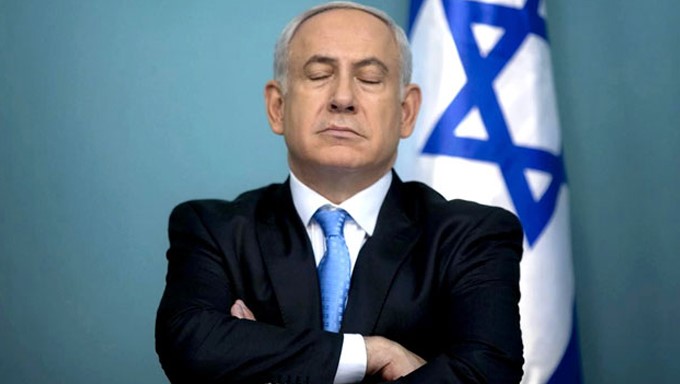
Benjamin Netanyahu, or even more know by his nickname Bibi is not someone, who needs introduction. He made a reputation for himself in the Likud as one the more chauvinistic, but pragmatical members of the party, and based his popularity on his brother Jonathan, who was the only Israel soldier to die in the Entebbe hostage crisis. Internationally even many allied world leaders hold him as a pathological liar. He himself has quite a fixation with Iran, though not as much for fear of imminent danger. Netanyahu, vicious as he is, is a pragmatic politician, who knows perfectly well that Iran poses no imminent danger for Israel. The Iranian card plays a much more comprehensive role for Israeli politics, especially now. By the Palestinian case or the possible immediate threat from neighboring Arab countries to Israel subsiding international criticism grew considerably in the last decade, especially in Europe over the illegal settlements built by the Jewish state. In very broad terms, he needs a fearful card to claim further support from the West and to derail international criticism. But this card works internally as well, since he needs an explanation for his policy on Syria, why to hold on support for terrorist organizations there and the continued bombardment of that sovereign neighbor. He always managed to pull the Arab, and in recent years the Iranian card before elections. The JCPOA was a considerable blowback for him, regardless his cheesy presentation in the UN, but he managed to survive the Obama years. With Trump at the helm he seems to get the best possible gains now, as Washington recognized Jerusalem as capital of Israel and Israeli sovereignty over the Ğulān.
But why is Iran so important for Bibi? Many point to the fact that Iranian presence in Syria grows, and with the Syrian government gaining the upper hand in the war imposed on it, there might be prospects that Tehran might get firm foothold in the vicinity. Which is a seemingly well sounded opinion, but has many flows in the details. First of all such equation would mean that Syrian decision making ceased to exist, or in other words Iran would be free to do whatever wishes regardless of Damascus. Examples, however, prove quite well that the Syrian government is not a subservient to Tehran, and in the foreseeable future cannot allow an open confrontation with Israel, unless the Jewish state attacks. But even if such hypothesis would be correct, Russia has much bigger weight in Syria, with which Bibi has troublesome, but manageable relations. So even if Iran tried to move against Israel from Syria – to which so far there is no evidence – and the Syrian government would be unable or unwilling to act – against which we see many examples – Russia would still be able to block that. And logically that is in Russia’s best interest, since it did not put its troops on the ground and gained foothold in the Eastern Mediterranean to jeopardize it in a major all-out war, which would certainly involve the US.
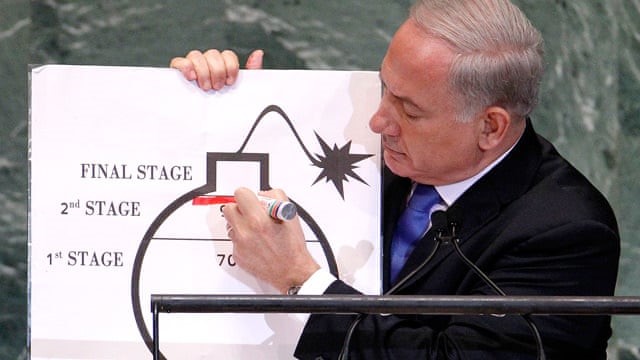
The other possible explanation would be that through its Syrian presence Iran could secure a supply line for Ḥizb Allah in Lebanon. But as we saw before, chairman of Ḥizb Allah, Ḥasan Naṣr Allah reaffirmed in his recent speeches that the organization is fully ready to thwart any potential Israeli aggression against it. Even if one might hold that as exaggerated, we should remember that back in 2006 Ḥizb Allah managed to stand ground even without such secure supply line.
Therefore the Iranian presence in Syria is far from being such immediate threat. It serves as a bigger regional agenda, as this way Israel has a sound rational to build collective security alliances with the Gulf states. With them together they might just give enough weight to lure Washington into a war. The price in that is twofold. In exchange of direct technical and logistical, and indirect political support for such attempt Tel-Aviv can ask the normalization of relations on official level with these states. Including recognition of Israeli sovereignty over the West Bank. If such step to happen, the Israeli diplomacy would have a sound argument to the world, that if even the leading Arab states recognize the West Bank as Israel and abandoned support for a Palestinian state, than why should the US have problem with that. And seeing Trump’s ease to spoil Israel with Jerusalem and the Ğulān, he would probably support such a plan, known all over the Middle East by now as “the deal of the century”. Also by formal mutual recognition and diplomatic relations Israel could gain allies in the gulf and could become a legitimate partner in building gas and oil pipelines from the gulf to Europe.
Therefore the Iran card for Bibi is very important, just not for the reasons he loudly claims. Internally as well, he could always count on the fear factor in the rapidly radicalizing Israeli society. That is why there is always a Gaza war before elections in Israel, like it happened this time. This time, however, it didn’t work for him, since only won the elections slightly and failed to form a government. New elections will come in September, but now the price is growing for Netanyahu as he faces criminal charges, which he can only evade – possibly – if he once again becomes PM. For that to happen, as it is obvious from the last elections, he needs bigger gains that Jerusalem and the Ğulan. And the war on Iran with possible spill-over to Syria might just do the trick.
Bin Salmān
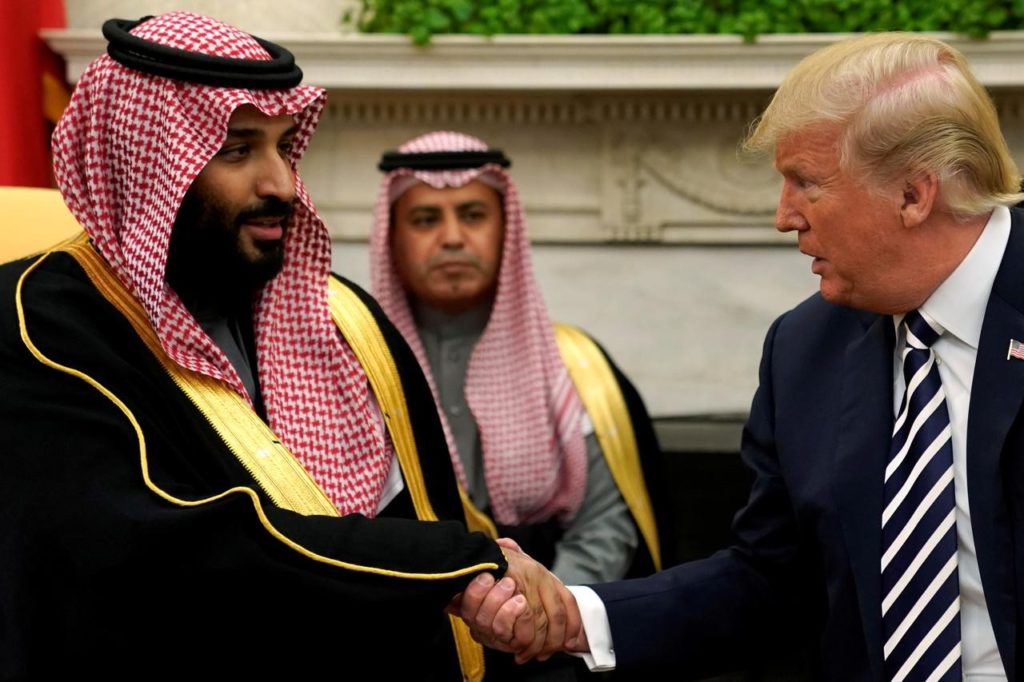
Since his father became the Saudi king, Muḥammad ibn Salmān practically took over the state. Yet his rule, thought he tried hard to present an image of himself as liberal a reform oriented led from one catastrophic blunder to another. The two top mistakes were undoubtedly the Hašoqğī case, and war on Yemen, which he launched still as Minister of Defense to prove himself as a capable military leader. But more than four years in the war gains are nowhere to be seen and the rightful international criticism is only growing, it is only draining considerable funds from the Saudi treasury. This campaign not only casts serious doubts how the kingdom would perform in any regional conflict, but given its need for more capable fighting forces, like Egyptians or Sudanese, makes the state ever more dependent on foreign supporters. That was always present, but until the last decade or so it only manifested towards Britain and later to the US. Some of ibn Salmān’s moves were even successful, like the partial privatization of Aramco, which yielded $100 billion to the Saudi coffers instead of the expected $10 billion. But his new approaches, his break the traditional religious elite and his vicious elimination of a large number of princes – his practical opposition – brought him to collusion course with his father. Salmān’s reappearance and the sidelining of his successor is becoming apparent now, like last time in the Tunis Arab League summit, where the Crown Prince was not even invited. Sources, however, point out one of the biggest concern’s of the king, the growing intimacy between Israel and the newly forming apparatus around ibn Salmān.
Which raises the question, just how strong or even possible are the ties between the Jewish and the Saudi states. In the West the conviction is strong that such ties are impossible given the general Arab-Israeli antagonism. Yet in the Middle East the picture is quite the opposite, as it is almost a common knowledge that while Israel truly has irreconcilable disputes with a number of Arab states, the Gulf actually holds very good relations with it Saudi Arabia being at the top. That might sound hard to believe, but in fact only last April the Saudi hosted Muslim World League and the Global Jewish Agency connected to the Israeli Foreign Ministry held official meetings. In that the Muslim World League officially invited an Israeli delegation to the Saudi kingdom scheduled January 2020. In this context a number of Israeli and American sources affirm that such meeting not only took place, but in the last few years both secret direct links and indirect official ones through the US are warming up rapidly and became more than intimate.

The Saudi and the general gulf paranoia over Iran is nothing new. It is usually reasoned as Shia-Sunni conflict, in which the irony is that back at the days of the Shah it was the same Salmān, who danced for the Iranian monarch, who is now the Saudi king. The reasons lies much closer for the precedent that the Iranian revolution created. That a monarchy sponsored and kept alive by the US can be toppled by popular uprising. And after the revolution Iran definitely pushed to export its revolution, though this desire, recognizing its futility, has long been abandoned since the death of Hōmenīnī. Since the ‘90s there is much more of a rivalry between the two sides of the Gulf for the leading role in the Middle East. Which is also a matter of concept, whether the region should rely on its own strength or on the continued good will of the leading superpower of the day. Which is a dilemma since the ‘50s.
Bin Zāyid
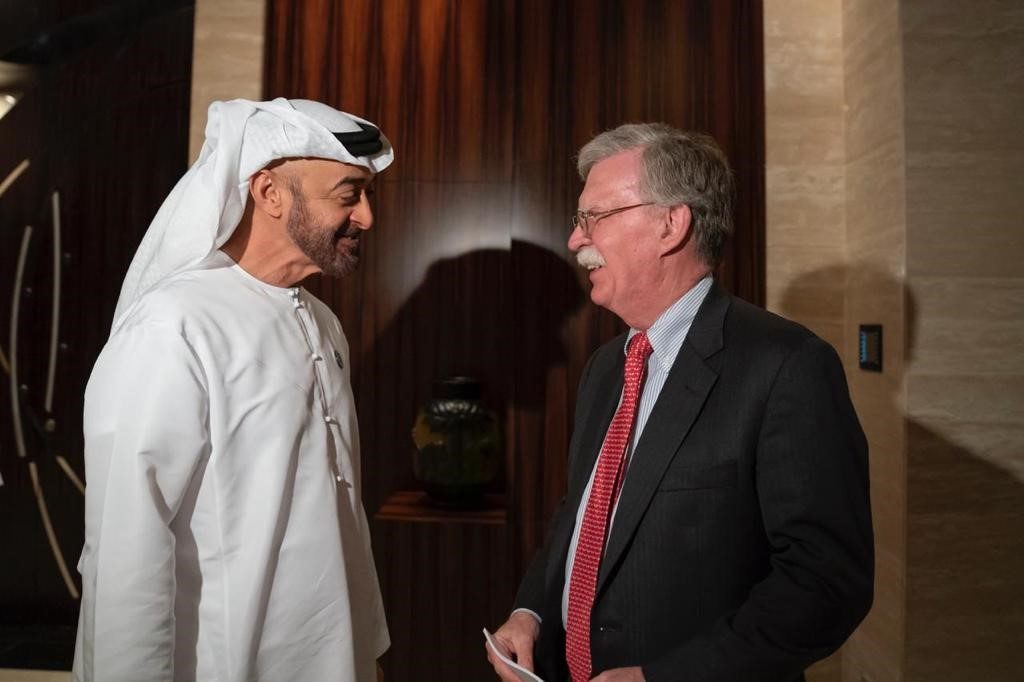
Muḥammad ibn Zāyid resembles his Saudi counterpart in many ways. Tough much more far-sighted then ibn Salmān, he is not a Machiavelli either. He was the mastermind behind the blockade on Qatar, which backfired so miserably that pushed Doha to the arms of Ankara and Tehran. He was also a very firm supporter of the war on Yemen, but unlike ibn Salmān, he already managed to secure firm gains. In 2018 the Emirates practically took away the strategic Island of Socotra from Yemen, where public buildings became adorned with ibn Zāyid’s pictures, as if he was the head of state.
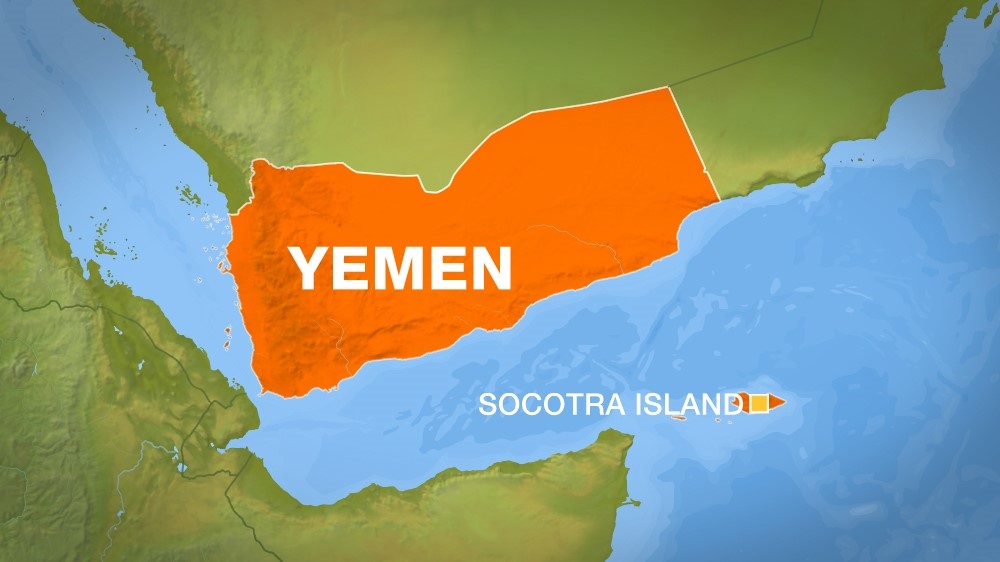
He was also the suspected mastermind behind the sidelining of the Maktūm family in Dubai ever since the economic crisis in 2008. During the war on Yemen he managed to secure support for his policy, since royal princes from Dubai and the other emirates died in the war. And in a largely tribal thinking society that calls for the continuation of the war. In recent times, however, ibn Zāyid went much farther and started a gradual, though very silent purge within the armed and security forces to his own likings. If these rumors are true that would suggest ibn Zāyid is truly consolidating his power over the country.
In previous editions we many times hinted that there seems to be a rising rivalry between the Emirates and Saudi kingdom. Which in many instances can be explained as ibn Zāyid is not actually struggling against the the Saudi state itself, but rather the same old apparatus he pretty much already overcame in his own country, and wants to consolidate control for ibn Salmān. Considering the difference in capabilities that is not illogical, since this was ibn Zāyid would gain even firmer, though tacit support from the much stronger neighbor.
As for Iran, Emirati tensions can be raised easily, since there is an age old dispute between the two states over three small, uninhabited, but strategic islands in the Straits of Hormuz, which are held by Iran, but the Emirates clam them to be theirs.
The drums of war
So all the players in the B-Team have their own selfish reasons for the war on Iran. Yet none of them are concerned with Iran for Iran itself. One by one for all of them a major war has far-reaching regional consequences, which they pursue. If the war comes ibn Zāyid will consolidate his grip on the Emirates, will eliminate the hinterland for Qatar, which can be dealt with finally and might bring back the center of trade in the Gulf to the Emirates. Which was jeopardized greatly by China’s plans to connect its economic corridor to Doha. Also, he can consolidate his likeminded – though much less capable – counterpart in Saudi. Since if a war happens, that will be definitely fought by the US, which will desperately need a stabile support line in the Gulf. Therefore Washington will under no circumstances will allow a major power reconstruction in Saudi Arabia, practically the retain of power by Salmān, which has the potential danger of the kingdom actually falling apart. So even if ibn Salmān would push for more control the US would support him, not to risk a major showdown in the kingdom ending up with the aging king at the helm, who might die any day. Much rather they would like to see a supportive accomplice in Riyadh, with whom as in Yemen, they can work together, and who would continue to economic restructuring of his kingdom for American favor. The gains here could pay the war effort.
Ibn Salmān sees all this in his advantage as well. He is the least concerned about Iran, but with all these potential benefits and the prospects now looking grim, he would probably vote for a war option and finally consolidate power in the fog of war. Since by the same logic, he can do whatever he wants, the Americans will back him up. And just far he can go he probably learned by now in the Hašoqğī case.
As for Bibi, he could consolidate Israeli relations with the Gulf, which would be dependent on Israeli support and American good will, which Tel-Aviv can influence considerably. Bogging down or even eliminating Iran would make it evacuate from Syria. While at the same time the “deal of the century” would grant him West Bank, allowing thousands of new settlements to be built and even legally. That added to Jerusalem and the Ğulān would make him able to pose as the savior of the country, and grant him such a support that even if he has to go to jail for a year or so, his eventual return to the limelight is secured. After all, achieving all that he would prove one of the most successful Israeli leader ever. And internally, he would be the one who cleared the skies of the black clouds of Iran in Syria and Ḥizb Allah.
Bolton is the most obsessed with Iran, but he is getting sidelined by now as Trump is backpedaling on the war. All of them face the dilemma, that Trump is actually not willing to go to such a risky and potentially catastrophic war with Iran. After all, his team barely managed to convince him to stay in Syria. That is unless something major happens, which proves Iran is about to attack. Something in a 9/11 magnitude. Something like the mysterious attack on four Saudi tankers on the port of Fuğayra few weeks ago in the Emirates. Which shall be out topic next week.

